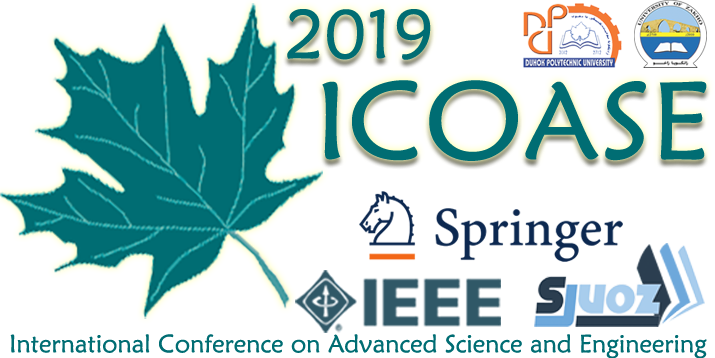Next Generation Sequencing (NGS) technology for DNA
Dr. Dhia M. Sulaiman, Duhok Polytechnic University
Room: University of Zakho – Hall 1
In the clinical next-generation sequencing several laboratory techniques were used and have been described in numerous reviews; proposed guidelines for their application to diagnostic testing have been published. A clinical next-generation sequencing test can be designed to target a panel of selected genes, the exome (all known genes, or approximately 1 to 2% of the genome), or the entire genome. Gene panels target curated sets of genes associated with specific clinical phenotypes. Phenotypes may be narrow, with 4 genes in the panel for familial hypercholesterolemia, or broad, with more than 1000 genes in the panel for intellectual disability. Clinical exome sequencing targets approximately 22,000 protein-coding genes. Clinical genome sequencing is untargeted, generating sequence data from a region that is 50 to 100 times as large as that covered by exome sequencing and that includes regulatory, intronic, and intergenic regions. Clinical decision making about which test to order is an area of active research. Genome sequencing generates more uniform sequencing in some regions than does exome sequencing. Emerging analytic approaches can use genome sequencing to detect structural variants and expansion of short nucleotide repeats associated with the disease. However, bioinformatic tools for genome sequencing are overall less developed than those available for exome sequencing. In addition, the cost of genome sequencing remains higher than that of exome sequencing, partly because of the cost of data management and analysis. The goals of this workshop are to provide the excellent opportunity to present updates on (Next Generation Sequencing (NGS) technology for DNA) and demonstrate wide ranges of analytic approaches which can be used for genome sequencing in order to detect structural variants and expansion of short nucleotide repeats associated with the disease.
Theme and Topics
- History and future of DNA sequencing
- Workflow
- Different platforms
- Quality scores in sequencing
- Applications
- Run types
- Data analysis
Speaker
- Dhia M. Sulaiman, Duhok Polytechnic University
Schedule
- 14:30 – 15:00, Registration
- 15:00 – 16:30, Opening the Workshop & starting presentation
- 16:30 – 17:00, Discussions, Notes, and Closing
1,554 total views, 1 views today
